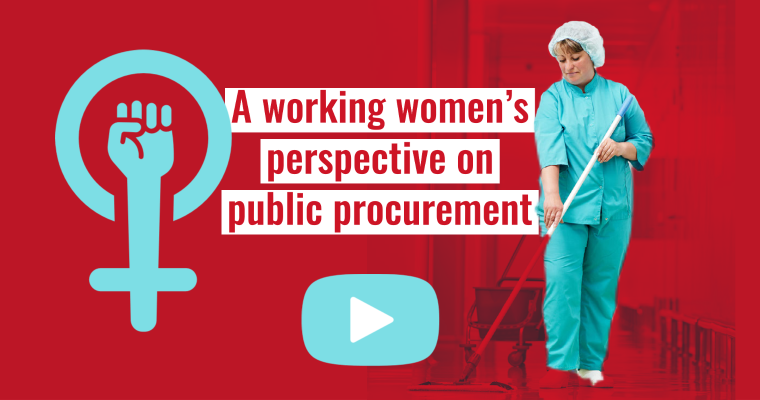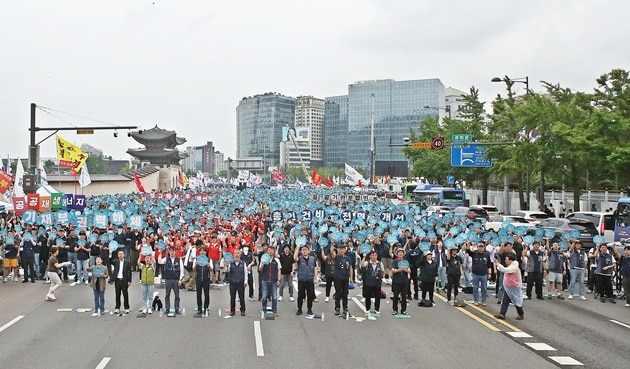A working women’s agenda: cleaning up public procurement
02.03.22
Women are worst hit by broken public procurement rules. Instead of fuelling precarity and low pay, public money must ensure working women have a strong collective say. Ahead of International Women’s Day on 8 March, UNI Europa highlights the importance of fixing public procurement rules to reducing the gender pay gap.
A working women’s agenda: cleaning up public procurementWomen are worst hit by the EU’s broken public procurement rules. Instead of fuelling precarity and low pay, public money must ensure working women have a strong collective say. Ahead of International Women’s Day on 8 March, we are joined by Kira Marie Peter-Hansen, Maria Noichl, SPD-Europaabgeordnete & María Eugenia Rodríguez Palop to highlight the importance of fixing public procurement rules. It is time to ensure that public money is always procuring decent work. For that, corporations that exclude working women from having a collective say at work must themselves be excluded from receiving public contracts.
Posted by UNI Europa on Wednesday, March 2, 2022
The majority of cleaners, carers, call centre workers are women. They are also jobs for which outsourcing is particularly common. Governments and public institutions pay private companies for these services.
The problem is in how these governments and public institutions select which companies receive public contracts. As UNI Europa research revealed, half of all awarding decisions in the EU only take one thing into consideration: price.
This incentivises the bidding companies to cut corners at all costs. Workers pay and conditions are the first target. Collective bargaining is the main vehicle for workers to claim higher salaries and to have their voice heard. As such, under current public procurement rules, companies have a competitive advantage in dodging collective bargaining in order to drive down pay and cut costs.
Essentially undervalued
The pandemic has exposed how the work done by these very women workers is undervalued. It is clear for all to see that our societies cease to function without them. The precarity and low pay they face is in complete contradiction to the objectively essential role they play.
The rules that prioritise price above the collective bargaining rights of working women align with a long history of devaluing of women’s work. A major step forward would be only allowing companies that have collective bargaining agreements with their workers to receive public contracts.
Momentum for a lasting change
Trade unions have been calling on the EU to do just that. Recently, over 100 Members of the European Parliament from across five different political groups backed their demands.
“It is not about asking some person at the top to re-evaluate the work women do from up above. It is about ensuring that the rules don’t allow, let alone incentivise, corporations to rob working women of their ability to lift their own conditions,” said Pilar Rato Rodriguez, Vice-President of UNI Europa.
It is time to ensure that public money is always procuring decent work. For that, corporations that exclude working women from having a collective say at work must themselves be excluded from receiving public contracts.
Further information:
- Get behind the campaign: no public contract without collective agreement


